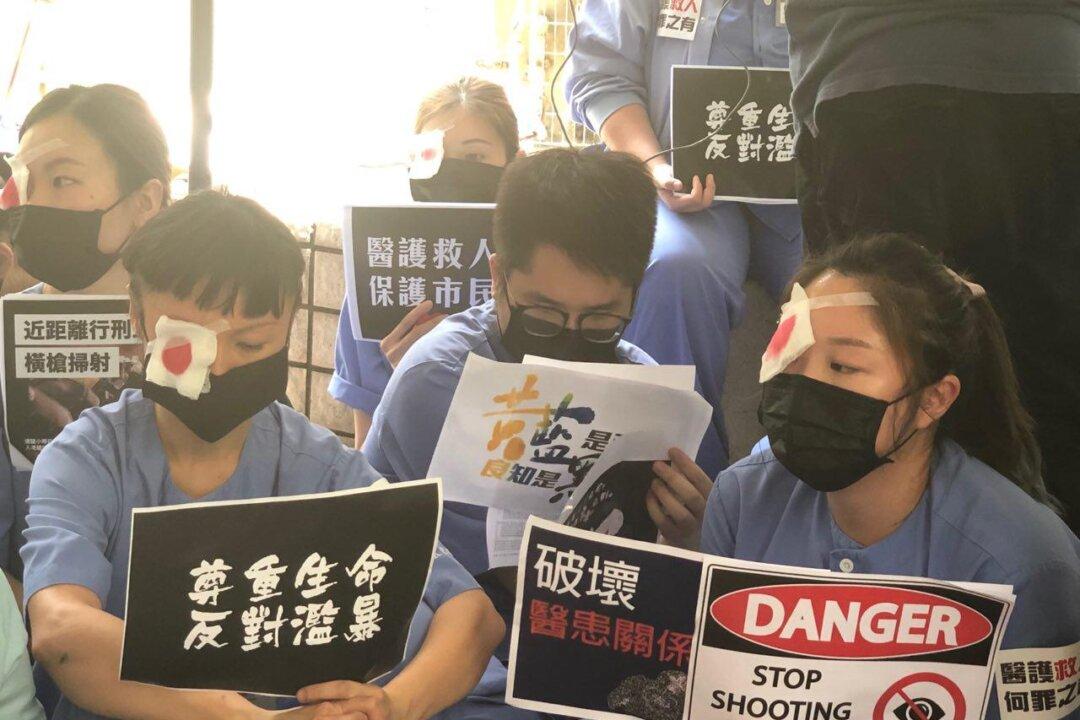Hundreds of hospital workers from Ruttonjee and Tang Shiu Kin hospitals in Hong Kong staged another sit-in outside Ruttonjee Hospital on Aug. 14 in support of the anti-extradition protesters and condemning the brutality of the police when dealing with them. It was the third consecutive day of rallies by medical professionals.
Doctors urged police officers to stop using unnecessary and harmful crowd control weapons like rubber bullets and sponge grenades. They criticized police for assaulting medical workers at the demonstration sites and obstructing them from attending to injured protesters.





